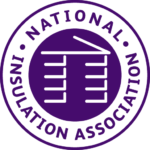
Great British Insulation Scheme – Government Consultation Response
This document acts as a summary of the main changes and outcomes of the ECO+/Great British Insulation Scheme consultation. Please read the full policy design and outcomes as detailed here.
Background
ECO+ has been renamed as The Great British Insulation Scheme to help with consumer awareness. The government’s strategic aims for the scheme are to help tackle fuel poverty, achieve Net Zero, and reduce total UK energy demand by 15% from 2021 levels by 2030. Annual phase targets will be set through legislation, and suppliers must meet at least 90% of each annual phase target within that year, with no constraints on exceeding annual targets. The scheme targets two groups: the general group and the low-income group, and a self-referral service will be launched in summer 2023. EPC bands D and E in the private rented sector are eligible for the general and low-income groups, while F and G are excluded unless exempt from PRS regulations. The Scheme will focus on delivering insulation and heating control measures and will support households across Great Britain.
Key Points
- Overall, respondents were supportive of the proposals for the Great British Insulation Scheme, previously known and consulted on as ECO+. Government have renamed the scheme to help with consumer awareness, and recognition of the support available.
- The Government’s strategic aims for the Scheme are to help tackle fuel poverty, achieve Net Zero and the aid in the ambition to reduce total UK energy demand by 15% from 2021 levels by 2030 across domestic and commercial buildings and industrial processes.
- A full scheme obligation with annual phase targets will be set through legislation. The legislation will specify the framework through which Ofgem, as scheme administrator, will determine the amount of annual bill savings that obligated suppliers must achieve, through energy efficiency (primarily insulation) measures. Suppliers must meet at least 90% of each annual phase target within that year, through qualifying measures, with any shortfall made up by scheme end. There will be no constraints on suppliers exceeding annual targets and making faster progress in meeting their scheme obligation.
- Suppliers may also begin delivering measures ahead of the legislation coming into force, from the date on which this document is published, and Government will take steps to facilitate this. The Scheme will target two groups: the “general group” and the “low-income group”. The general group will consist of those living in homes with an EPC rating D-G and within Council Tax bands A-D in England and A-E in Scotland and Wales. Eligibility in Wales is expanded from Council Tax bands A-C as consulted upon to better align the proportion of eligible homes in each nation.
- The low-income group will consist of those living in homes with an EPC rating D-G and will broadly mirror the household eligibility requirements of ECO4 (being on means tested benefits or living in the least efficient social housing). At least 20% of each supplier’s annual phase target must be delivered to households in the low-income group. There will also be a flexible eligibility element to the Scheme, where households that do not meet the low-income group eligibility criteria but are considered by a local authority, or participating energy supplier to be living in fuel poverty, or on a low-income and vulnerable to the effects of living in a cold home can be supported. Households treated via this mechanism can comprise up to 80% of a supplier’s low – income minimum.
- To help households to learn about and access the Scheme, Government plan to launch a self-referral service in summer 2023 as part of GOV.UK.
- For the private rented sector (PRS), the proposal will be retained as consulted on, so that households in EPC bands D and E are eligible in the general and low-income groups, while those in EPC bands F and G will be excluded unless exempt from the Energy Efficiency (Private Rented Property) (England and Wales) Regulations 2015 (‘PRS Regulations’). PRS households in the general group are only eligible for higher-cost insulation measures excluding loft or cavity wall insulation.
- Social housing will be eligible where it has an EPC band of D-G, and the eligible measures depend on this EPC rating.
- In Scotland and Wales, low-income off-gas households living in rural areas will be supported with a 20% uplift to the score given to each measure. In England, where different arrangements apply, the Home Upgrade Grant will support low-income off-gas households; it has ringfenced 60% of funding for rural local authorities.
- In a change to the approach proposed in the consultation, obligated suppliers will not have to prove that low income properties cannot meet the ECO4 minimum requirement in order to be eligible for support through the Scheme. This is to simplify delivery and ensure support is available for all low-income households.
- There will be no requirement to improve properties by a certain number of EPC bands and the Scheme will focus solely on the delivery of insulation and heating control measures. All measures must be delivered in accordance with PAS 2035; this includes cavity and loft insulation in all scenarios and heating controls.
- Each household in the general group will only be able to receive one measure. Owner occupied households in the low-income group are eligible for heating controls in addition to an insulation measure. In setting the overall scheme obligation, Government assume that households in the general group will collectively contribute £80 million towards insulation measures (equivalent to 10% of the £800 million scheme budget earmarked for this group). However, they believe it will be for suppliers to manage how this is achieved overall, with any contributions agreed on an individual household basis linked to the work done. Innovation Measure (IM) scores will receive a 25% or 45% uplift, as applies in ECO4, in the low-income group only.
- As consulted on, ECO4 partial project scores will be used in the Scheme to calculate the bill savings a measure achieves. As pre-retrofit RdSAP (Reduced Data Standard Assessment Procedure) assessments are required for all retrofits under the Scheme, EPCs will not be required to evidence the pre-installation energy efficiency rating of a property.
- The cost of delivering GBIS will be included within the Energy Price Guarantee. To facilitate that, an allowance for the scheme has been included by Ofgem in the default tariff cap (the price cap) from April 2023 onwards. In terms of scheme administration, the notification processes and deadlines will remain as proposed in the consultation.
- The trading of obligations and transfer of measures will be permitted, within set parameters, as widely supported by respondents to the consultation.
- The Scheme will support households across Great Britain, recognising the benefits in terms of efficiency and reduced bureaucracy from a single, consistently designed scheme. The UK Government will work in dialogue with the Scottish and Welsh Governments to implement the Scheme.
ECO4 Amendments
There was overall support for the changes proposed by the Government. The following changes have been made:
- The definition of a renewable heating system will be amended back to the ECO3 definition of “wholly or partly”. This will allow electricity generation equipment, such as solar PV, to be installed alongside electric storage heaters (ESH) and electric heating systems (EHS) and considered a renewable heating system if some of the electrical output produced by the solar PV is used to generate heat.
- Solar PV is eligible for install in on-gas and off-gas homes that already have a hydronic heat pump, ESH or EHS installed with a manufacturer responsiveness rating of 0.8 or above when assessed against the Standard Assessment Procedure, or that have had them installed as part of an ECO4 project.
- Coal, oil, LPG and biofuels are excluded fuels from ECO4, and by extension ECO+.
- ESH/EHS installation will be extended to homes with neither an efficient nor inefficient heating system (i.e., homes with no heating or that use only plug in room heaters or wall mounted electric heaters), and for offgas homes where it is not possible to install measures from the off-gas heating hierarchy in these homes. However, there are no changes to the types of eligible measures allowed in different tenure types.
- Off-gas homes may connect to district heating systems fuelled wholly or partly by gas in accordance with the off-gas heating hierarchy at stage 2.
- SAP10 and RdSAP10 assessments will be used for evidencing instead of SAP2012 and RdSAP201
Future Publications
Following publication of this document, government will lay affirmative regulations in Parliament, which we expect to come into force later this year. The policy described here is subject to Parliamentary approval of the regulations. Ofgem, the administrator of the Scheme, will publish separate guidance for local authorities, the devolved administrations, and suppliers. The government will publish the Final Impact Assessment for the Scheme in spring 2023
